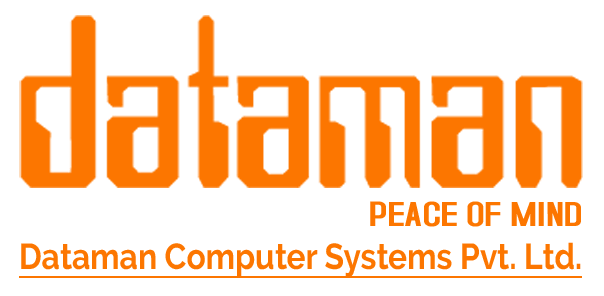- +91 9511117684
- shweta@dataman.in

Post Views: 10,945
Laboratory Information Management System (LIMS) is a comprehensive software solution designed to optimize the workflow of any laboratory, regardless of its size. This system automates the entire laboratory process, from patient registration to billing. With the increasing competition and testing facilities, a LIMS is no longer a luxury, It’s a necessity. Implementing a LIMS can bring significant advantages to the laboratory information management system. Here are the top 9 of them.
1. One Dashboard for All Laboratory Data
A laboratory information management system centralizes all your lab data in a single, user-friendly dashboard. All the processes, inventory, staff, data, billing can be managed from one place with just a few clicks. Moreover, the system generates various types of helpful reports to analyze, and evaluate the lab business operations. Easy and fast access to the processes also enhances productivity and efficiency.
2. Effective Sample Management
Sample collection, tracking and generating report is the major operation of a laboratory. This operation should be done very carefully as even a minor error could lead to fatal problems. One of the major advantages of laboratory information management systems is that the system effectively manages the samples.
Features like barcoding, chain-of-custody tracking, and automated workflows ensure sample integrity and minimize the risk of errors. Lab officials can easily locate samples, view their status, and access associated data, improving efficiency and reducing turnaround times.
3. Seamless Integration & Customization
A laboratory information management system (LIMS) can be integrated with existing systems, depending on the lab’s specific requirements. For instance, if the lab is part of a hospital or clinic that already uses a hospital information management system (HMIS), the LIMS can be seamlessly integrated with the existing HMIS.
Every lab has a unique set of patients and processes so one general system can not fit all laboratories across the nation. Customization of lab software allows lab owners to perform the operations they require in their system as per their workflow. The system should be capable enough to adapt to the future needs of the lab.
4. Optimized Laboratory Processes
Other major advantages of a laboratory information management system (LIMS) include automating repetitive tasks and enforcing standardized operating procedures (SOPs). This eliminates inconsistencies and ensures consistent, high-quality results. Automated workflows reduce manual errors and free up valuable time for your professionals to focus on complex tasks and research.
Also Read: Top 5 Hospital Management Software in India
5. Compliance with Standards
Compliance with national and international standards is very crucial to operate your lab smoothly. A LIMS offers a comprehensive solution for maintaining compliance with industry standards like ISO/IEC 17025 and Good Clinical Laboratory Practices (GCLP) -2021. The system can manage electronic signatures, document control, audit trails, and corrective action/preventive action (CAPA) processes. If the system is integrated with another system, so that system should also be compliant with the national and international data standards like DISHA, HL7, HIPAA, etc.
By ensuring regulatory compliance, your laboratory can avoid costly audits and penalties. Therefore, following the standards is one of the primary advantages of laboratory information management systems.
6. Data Security & Management
In a lab data is generated and stored at various stages of operations. Patient registration, sample collection, sample tracking, results, report generation and billing all are the data and it should be stored securely and managed carefully.
Advantages of a laboratory information management system includes robust data security features, protecting your valuable information from unauthorized access or loss. Features like role-based access control, user authentication, and audit trails ensure only authorized personnel can access sensitive data. Additionally, a LIMS helps manage data by offering secure storage and version control, ensuring you always have access to the most accurate and up-to-date information.
7. Easy Tracking & Detailed Reports
Another advantages of a laboratory information management system include lab operations report generation in a regular interval of time. The reports are generated in various forms for each process so that you can analyze and see your business from a deeper point of view. It also enhances the decision making capacity as you have deep down information of each process.
With a LIMS, tracking samples, tests, and results becomes effortless. You can easily search for specific data points, view sample histories, and generate detailed reports. These reports can be customized to meet your specific needs, providing valuable insights into laboratory performance, trends, and potential areas for improvement.
8. Improved Communication & Collaboration
Easy and quick communication within and across the departments of a lab or hospital (if the lab is part of a hospital) is very crucial. If your lab lacks communication and collaboration, you should take advantage of the laboratory information management system.
The system allows lab technicians to share data and results securely, facilitating teamwork and knowledge sharing. Additionally, it simplifies communication with clients by providing real-time access to project updates and test results.
9. Reduced Time & Cost
A laboratory information management system (LIMS) is significantly faster than manual processes, making all laboratory operations paperless. This frees up a significant amount of time for lab technicians and administrators. Elimination of manual processes and paperwork reduces the cost of the lab.
By automating repetitive tasks, reducing errors, and streamlining workflows, you can increase laboratory efficiency and productivity. Reduced turnaround times can lead to faster project completion and improved client satisfaction. Additionally, the system can help you optimize inventory management and minimize waste, leading to cost savings in the long run.
Also Read: LIMS(Laboratory Information Management System) and Its Function
Conclusion
The advantages of a laboratory information management system (LIMS) are numerous.
Implementing a LIMS in your laboratory is an investment in efficiency, accuracy, and compliance. As a LIMS empowers your team with the tools they need to work smarter, not harder. From centralized data to optimized workflows, a LIMS offers a comprehensive solution for laboratories of all sizes and disciplines.
If you have not yet shifted to an automated lab environment, consider exploring the advantages of laboratory information management systems and take your laboratory operations to the next level. It could unlock the full potential of your laboratory.
Not sure where to start? Contact Us today.
0

